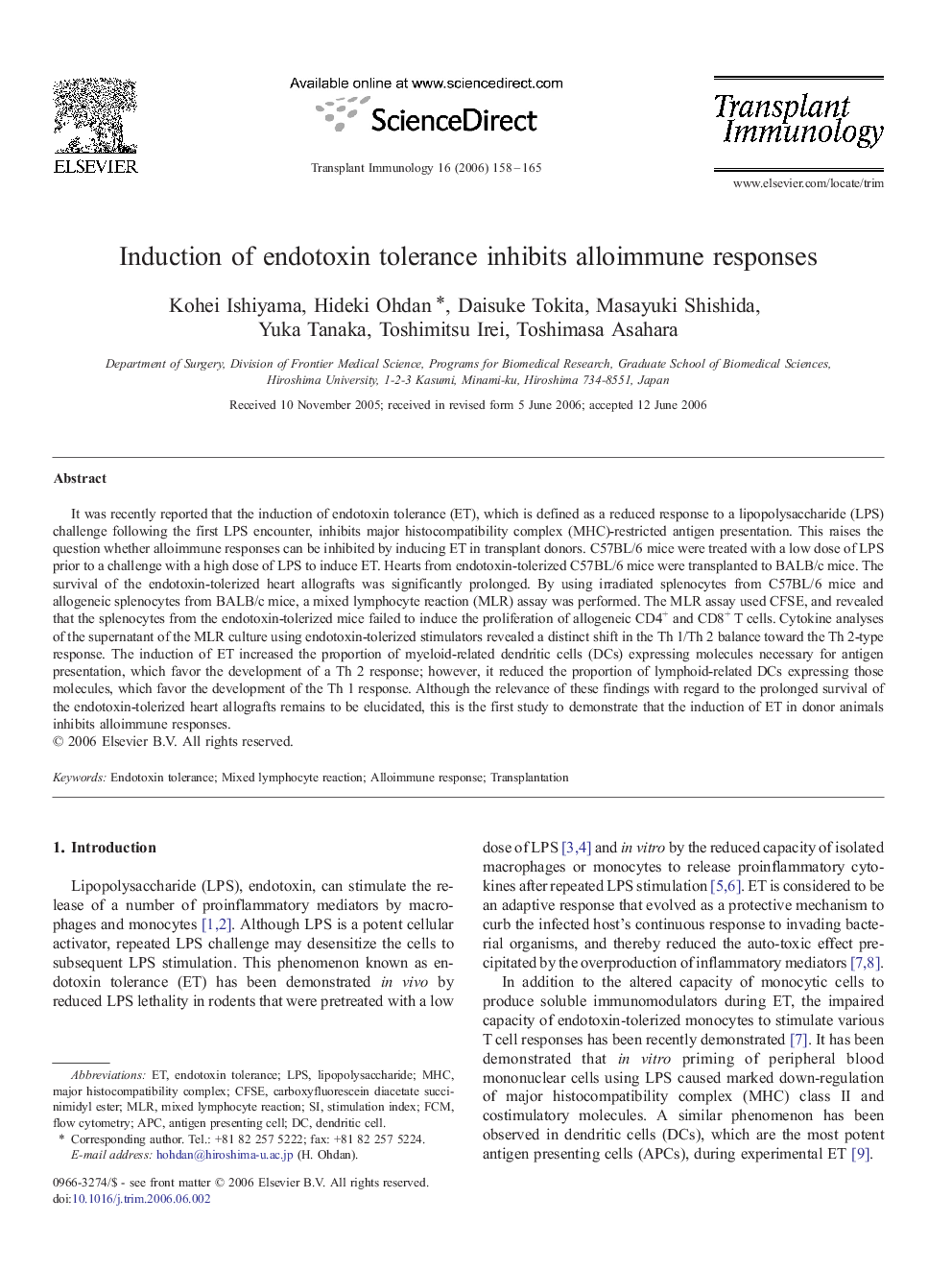| Article ID | Journal | Published Year | Pages | File Type |
|---|---|---|---|---|
| 3392590 | Transplant Immunology | 2006 | 8 Pages |
It was recently reported that the induction of endotoxin tolerance (ET), which is defined as a reduced response to a lipopolysaccharide (LPS) challenge following the first LPS encounter, inhibits major histocompatibility complex (MHC)-restricted antigen presentation. This raises the question whether alloimmune responses can be inhibited by inducing ET in transplant donors. C57BL/6 mice were treated with a low dose of LPS prior to a challenge with a high dose of LPS to induce ET. Hearts from endotoxin-tolerized C57BL/6 mice were transplanted to BALB/c mice. The survival of the endotoxin-tolerized heart allografts was significantly prolonged. By using irradiated splenocytes from C57BL/6 mice and allogeneic splenocytes from BALB/c mice, a mixed lymphocyte reaction (MLR) assay was performed. The MLR assay used CFSE, and revealed that the splenocytes from the endotoxin-tolerized mice failed to induce the proliferation of allogeneic CD4+ and CD8+ T cells. Cytokine analyses of the supernatant of the MLR culture using endotoxin-tolerized stimulators revealed a distinct shift in the Th 1/Th 2 balance toward the Th 2-type response. The induction of ET increased the proportion of myeloid-related dendritic cells (DCs) expressing molecules necessary for antigen presentation, which favor the development of a Th 2 response; however, it reduced the proportion of lymphoid-related DCs expressing those molecules, which favor the development of the Th 1 response. Although the relevance of these findings with regard to the prolonged survival of the endotoxin-tolerized heart allografts remains to be elucidated, this is the first study to demonstrate that the induction of ET in donor animals inhibits alloimmune responses.
